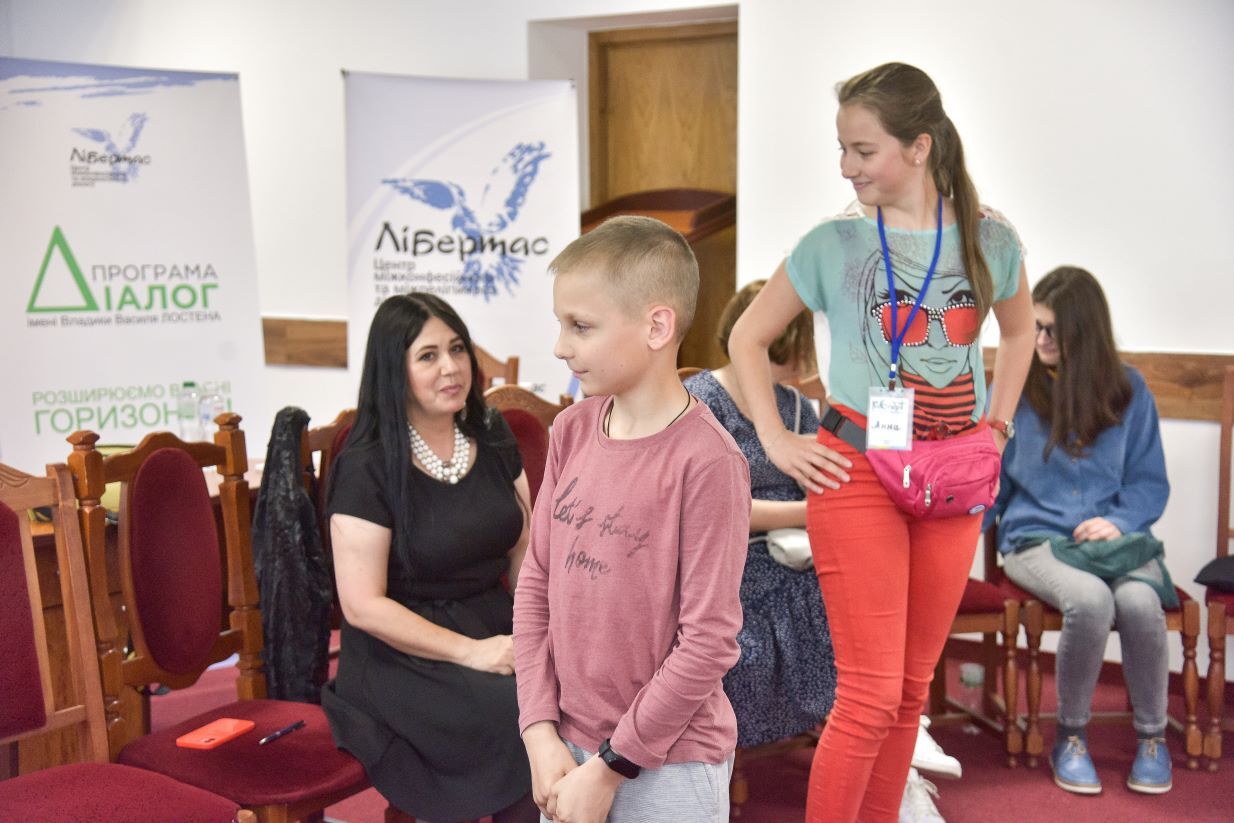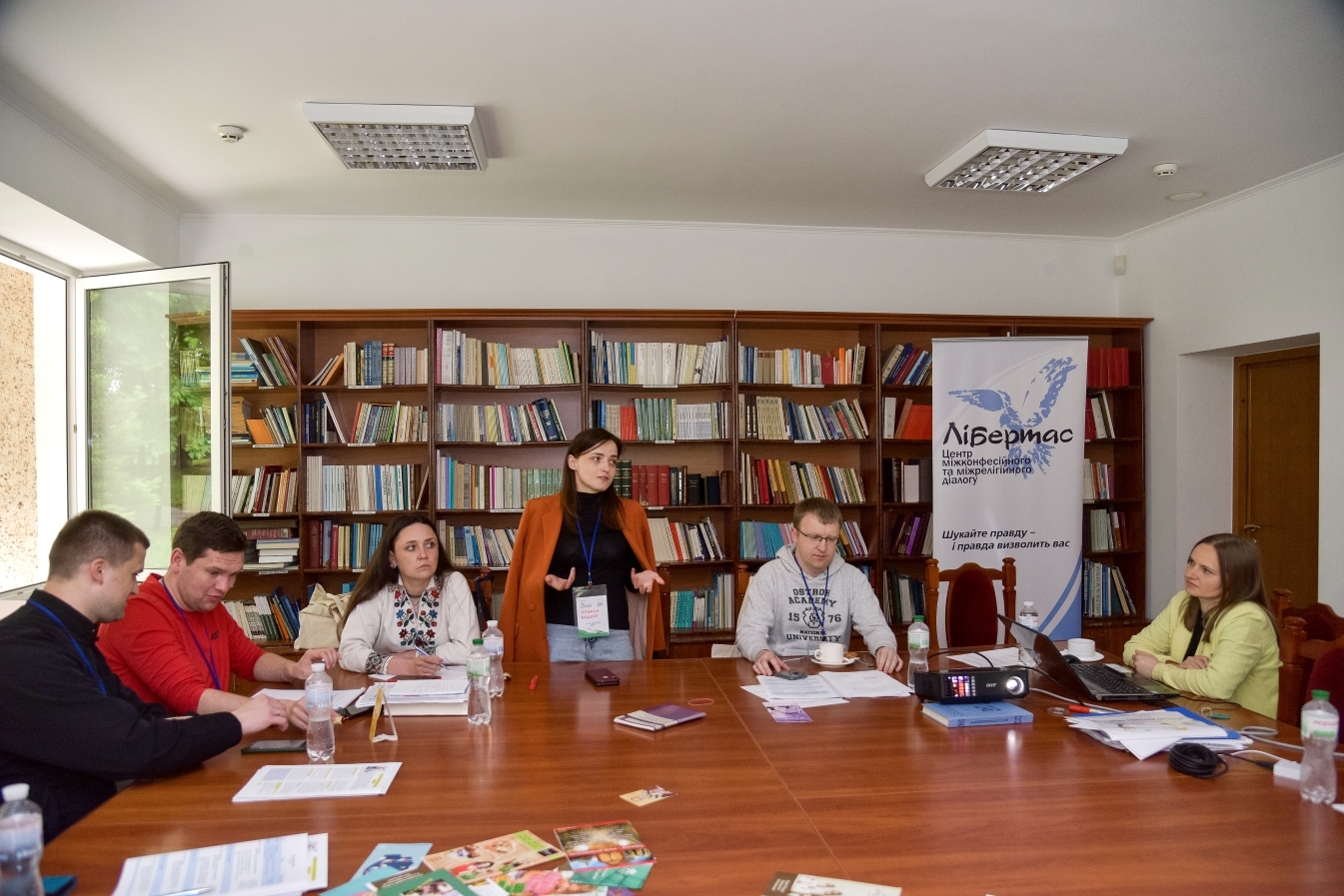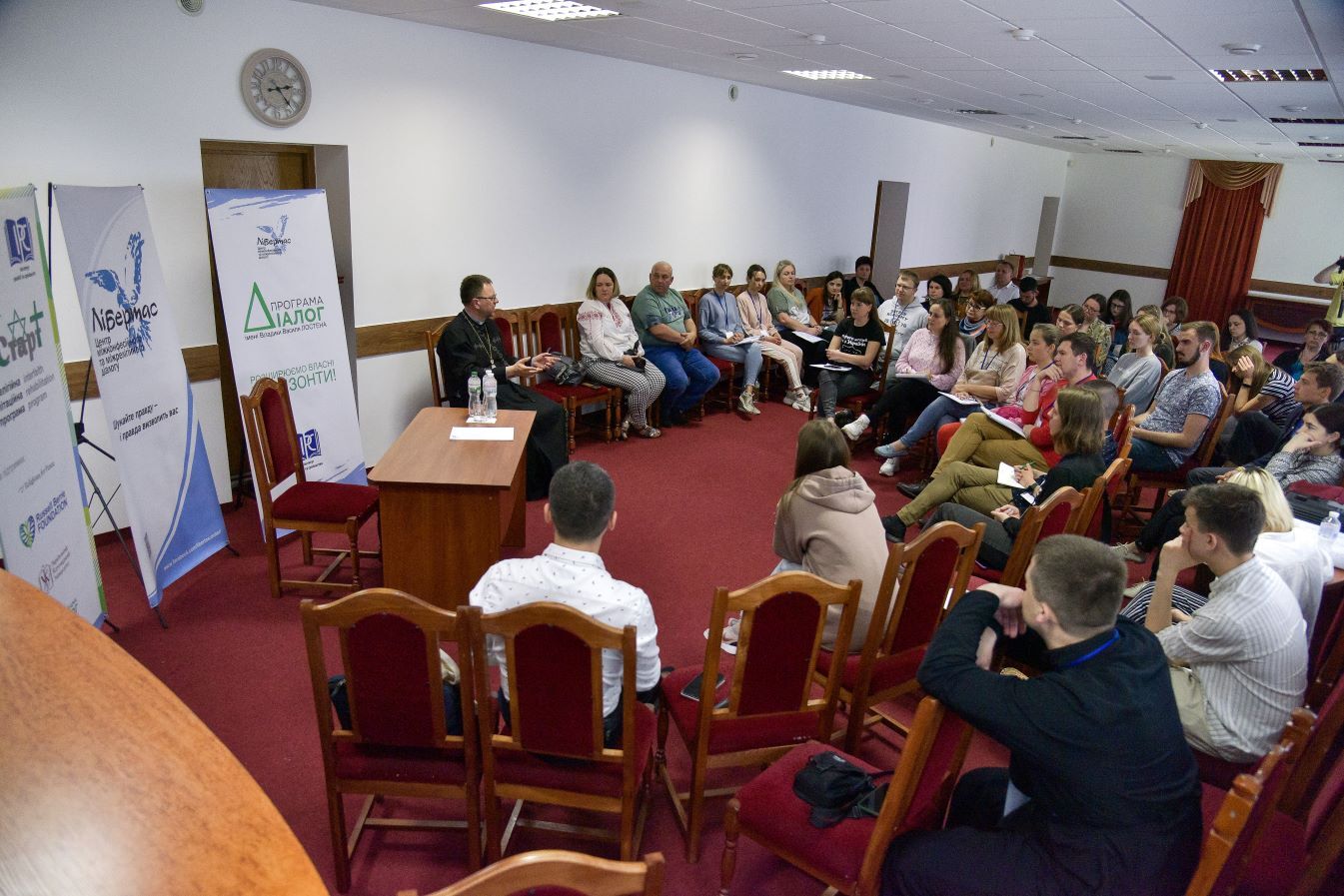FEATURE | 2 Feb 2023
“Only when you understand the past, can you define a vision for the future”
Interview with Taras Dzyubanskyy, Ukrainian expert on interreligious dialogue
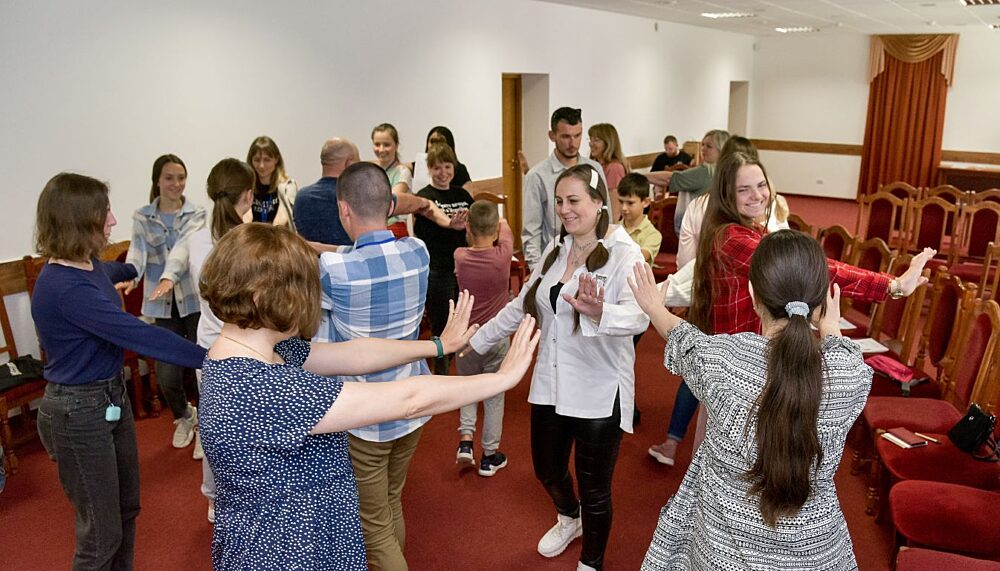
Read how religion can promote understanding and resilience in Ukraine.
Ukraine is a country with a considerable ethnic and religious diversity. During our interview, Taras Dzybanskyy shared why interreligious dialogue is so important in Ukraine, and how spirituality can support Ukrainians in coping with the experiences of war and moving their country to the future.
Berghof Foundation: Taras, thank you for taking the time to speak to us. You represent an organisation specialised in interreligious dialogue. How have interreligious relationships and dynamics changed in Ukrainian society over the past year?
Taras Dzyubanskyy: I have been working in this field for over 15 years and have seen how it has changed over time. In Ukraine, first and foremost, there is a need for ecumenical dialogue. There is quite some religious diversity in our country: there are different Catholic and Orthodox Christian churches, as well as Jewish communities and Muslims like the Crimean Tatars. Their religious freedom and identity, for example, has been suppressed since the annexation of Crimea in 2014. Unfortunately, the war has escalated many interreligious misunderstandings. But it has also given us an opportunity to reflect on our religious identity. And as interfaith peacebuilders we know that there are so many values that are similar across different religions: the respect for human life, human dignity, the common good and peace, for example. All Ukrainians are now also starting to come up with a vision for the future of our country, and with a shared narrative of the past. This is crucial: only when you understand the past, you will be able to build on it and define a vision for the future.
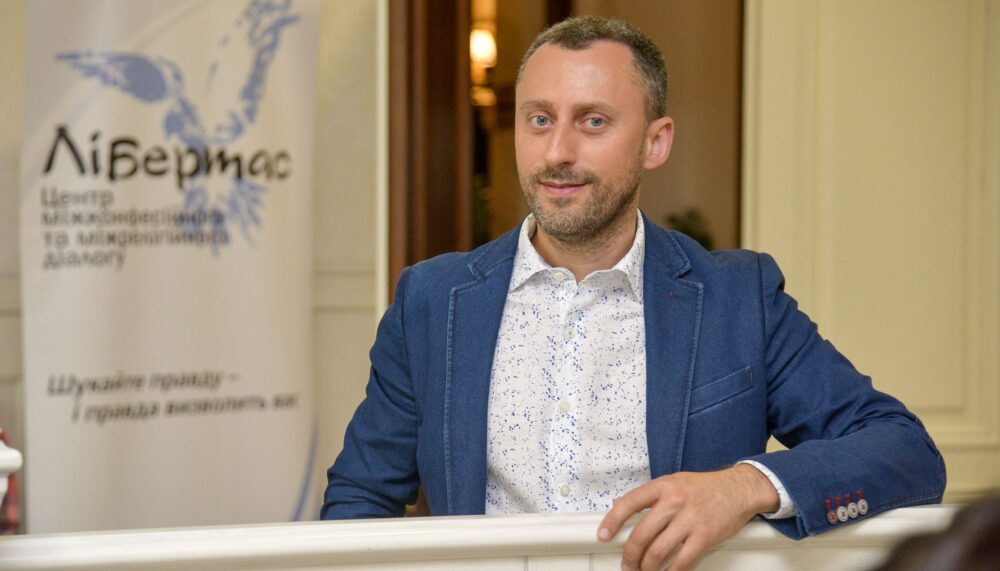
Taras Dzyubanskyy is the founder of the Libertas Center for Interreligious Dialogue and director of the Institute of Religion and Society of the Ukrainian Catholic University in Lviv. Taras is strongly committed to promoting interfaith and intercultural dialogue on the basis of his belief that people of different faiths have a lot to offer to humanity through their religious experiences and traditions, which are an invaluable source of wisdom, prudence, love and respect.
Libertas Center is a non-profit organisation aimed at promoting interconfessional and interreligious dialogue and understanding in Ukraine and abroad. It applies scholarly research and innovative thinking to interfaith issues and works to protect religious freedom by fostering connections among confessions and religions in the area of academic learning and through cooperation in social projects.
BF: How has the scope of your work changed since the beginning of the full-scale invasion? What is the role of your organisation in the current context?
TD: We started our organisation in 2013, long before the war, even before the annexation of Crimea. The goal of Libertas Center is to promote dialogue within and between different religious communities. So, when it was established, the aim of the centre was to promote understanding between different faith groups and to raise awareness for religious diversity in Ukraine. For instance, we held different academic seminars and workshops to increase religious literacy.
But already in 2014, after the annexation of Crimea and the start of the conflict in the east of Ukraine, we understood that we need to shift our focus. Raising awareness for religious diversity is important, but it's also important to bring communities together and to work on pressing social issues. For example, in 2015 many Crimean Tartars fled from Crimea to other parts of Ukraine, including to my city Lviv. I noticed that they had many different needs, such as spaces for worship and community gatherings and a Muslim cemetery. We understood that we had to help them – through interreligious dialogue – and supported them to negotiate a place within a public cemetery where they could bury their dead and a space where they could establish a Muslim cultural centre.
During that time, we also organised a spiritual rehabilitation programme for widows, who had lost their husbands in the conflict in the east of Ukraine. This was one of our first practical projects where we used interfaith spirituality as a tool to support their rehabilitation. We took elements from different religious traditions and brought the widows together with psychologists so they could work with them to deal with their trauma.
After the full-scale invasion last year, our focus shifted again, this time towards supporting resilience and recuperation. One of our recent initiatives is the “Restart” project, where we brought young people to a monastery for a week-long retreat. We call this programme “Restart” because a lot of people need to “restart” their lives now, after and despite of all their loss and trauma they experienced. Although this experience was very challenging, it was even more rewarding to hear about the transformations the participants underwent despite the ongoing war. Editor's note: Read their stories here, in Ukrainian.
BF: How is dialogue perceived in Ukrainian society after close to a year of war? Is there space for dialogue?
TD: Dialogue was the central idea behind founding Libertas Center. But these days, I believe we really need to rethink it. When there is war, when bombs are falling, who do you engage in dialogue with? Does dialogue loose its meaning in this situation? I believe it does not, but we have to rethink how we do it. As dialogue facilitators, we know that creating a safe space is important. But in a situation where your life is in danger, finding a physically safe space is of utmost importance.
For the “Restart” project in June last year, one of the biggest challenges was finding a physical space that is safe amidst missiles and air raid alerts. It was complicated, but doable. Many of the participants of this project were non-believers and not religious, but they told us that the war and our project made them rethink the role that religion can play in our society. Prior to the war, when we organised workshops and meetings, we often had difficulties finding people interested in talking about religion or interfaith dialogue. This is completely different now: In June, we actually had too many applications and had to turn people down.
But we also see an increased demand from the side of the religious communities, who are asking us to organise workshops about concepts like war and peace, justice and truth. This means that we cannot stop to bring different people together and promote this kind of understanding, even though there is a war going on.
BF: Have there been any experiences in your area of work at the community level that made you hopeful since the war started?
TD: Let me tell you about two examples. This first one is from before the war started: When the Covid-19 pandemic first struck, everyone was stuck at home during lockdown. That is when we started a digital project called “Interfaith Digital Caravan”. We brought together young people from different religious backgrounds, in front of their computers, and we asked them to design their own social media campaign about an issue that is important to them. This could be their identity, their relationship with the parents, their education, climate change – they were free to choose a topic. The project lasted for six months, we only met online via Zoom. The young people were very excited about it and they stayed engaged in this virtual space for the whole time. When you think about, it is amazing that they kept on going even though we only met online during this horrible pandemic. Once we were able to meet again, we organised an in-person meeting and everybody showed up. Their commitment made me very hopeful.
Then the full-scale invasion happened, the war started, and Covid seemed like nothing compared to this new reality. And again, it was young people who were most inspiring to me. During the “Restart” project, the reflections of a group of ten young people who are part of the Ukrainian Academy of Leadership on their experiences during the war were extremely moving. One of them said, that as Ukrainians we feel so much hate at the moment, especially towards Russia. But, he continued, we must understand that this is not the way to go because hate would not take us to the future. It is a real challenge in this situation to not become like the aggressor. But to hear such brave and wise reflections from younger generations, and to see that there are still so many who are willing to engage in dialogue, is something that really gives me hope.
This article is part of a series in which we want to highlight the voices of Ukrainian civil society organisations and peacebuilding initiatives, and their response to the war.
You can find more articles and our discussions on Ukraine here.
Media contact
You can reach the press team at:
+49 (0) 177 7052758
email hidden; JavaScript is required
